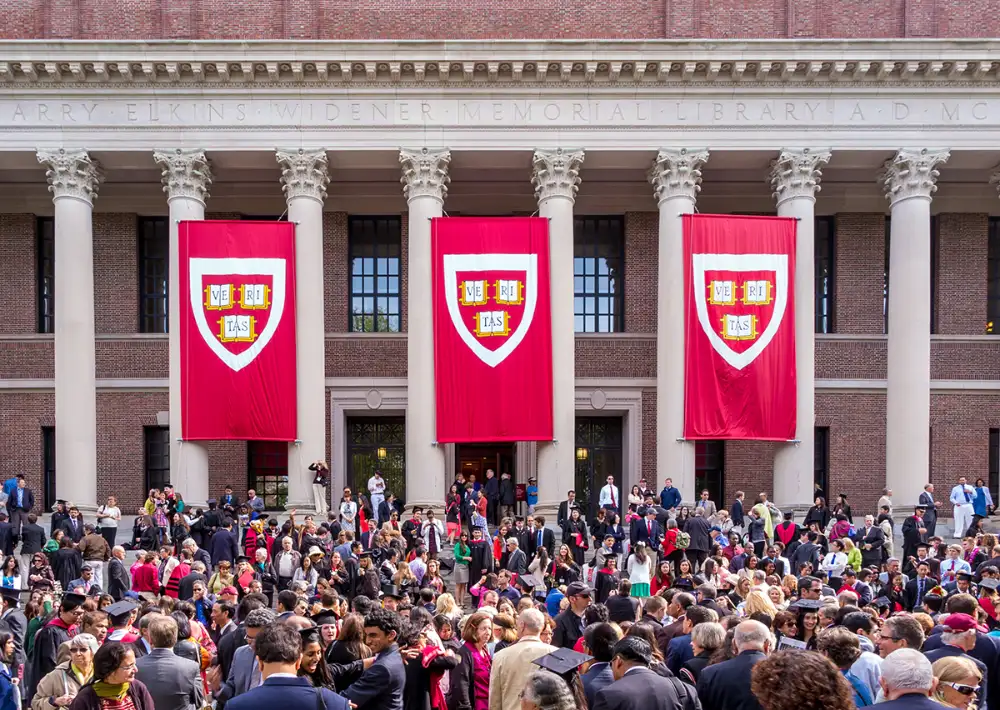Harvard vs. Trump: What International Students Should Know About the Legal Battle Over Visa Sponsorship

Last week, a federal judge issued an injunction blocking President Donald Trump from revoking Harvard University’s ability to enroll international students and sponsor visiting scholars. The ruling temporarily halts an unusual and controversial move by the Trump camp to restrict the university’s participation in the F-1 and J-1 visa programs.
This legal dispute has significant implications—not just for Harvard, but for thousands of international students and scholars across the U.S. If the case advances to the Supreme Court, the outcome could reshape how academic institutions engage with federal immigration programs in the future.
What Happened?
In early May, the Trump team moved to revoke Harvard’s SEVP (Student and Exchange Visitor Program) certification—a designation that allows the university to issue Form I-20s and DS-2019s to international students and exchange visitors. According to statements from DHS Secretary Kristi Noem, the action was based on Harvard’s alleged failure to comply with requests for information, as well as accusations that the university was fostering antisemitism, campus unrest, and even coordinating with the Chinese Communist Party. Noem described Harvard as contributing to a “toxic campus climate” and cited concerns over national security and student safety.
Harvard strongly denied these claims and filed suit in federal court, arguing that the attempted revocation was politically motivated and unsupported by any formal findings of wrongdoing. The university emphasized that it remains fully compliant with federal immigration regulations and has not been cited for violations by DHS or the Department of State.
A federal judge agreed—at least temporarily. In granting a preliminary injunction, the court found that revoking Harvard’s certification wo
uld cause “irreparable harm” to the university and its international community and that the government’s action was unlikely to succeed on the merits. The injunction allows Harvard to continue enrolling and sponsoring international students while the case moves forward.
Why This Matters
Harvard enrolls thousands of international students and sponsors hundreds of scholars each year. But this case is not just about Harvard—it’s about whether any administration has the authority to revoke a school’s visa sponsorship rights without a clear process or proven misconduct.
If the Trump team’s position is ultimately upheld, it could give future administrations broad discretion to deny or cancel a university’s ability to participate in international visa programs. This would introduce significant uncertainty into the admissions process and could have a chilling effect on global student mobility.
Moreover, other schools could become targets based on political ideology, public statements, or the demographics of their student populations. For institutions that rely heavily on international enrollment for tuition revenue, research capacity, and cultural exchange, the consequences could be severe.
What Happens Next?
The legal battle is likely far from over. Many expect this case to reach the U.S. Supreme Court, especially given the broader constitutional questions it raises—such as whether executive power can override established immigration procedures without due process.
With a conservative majority on the court, the outcome is hard to predict. Some justices may favor strong deference to executive authority in immigration matters, while others may be more cautious about allowing politically motivated actions that target specific institutions.
A final ruling could take many months. In the meantime, the court’s injunction means that Harvard—and by extension, other SEVP-certified schools—can continue to enroll international students as usual.
What Should Students and Schools Do?
International students currently enrolled or planning to enroll in U.S. institutions should monitor this case closely, especially if they are applying to schools that have taken public stances on immigration or social issues.
For now, visa issuance and enrollment procedures remain unchanged. But the case underscores the importance of:
- Maintaining valid visa status at all times
- Ensuring documentation is up to date and properly filed
- Having contingency plans in place in the event of policy changes or delays
For educational institutions, this case serves as a reminder to document compliance efforts thoroughly and to be prepared for increased scrutiny in politically sensitive climates.
Final Thoughts
This case is not just about immigration—it’s about the future of American higher education and whether the U.S. will remain a destination of choice for the world’s top talent. While the courts have issued a temporary safeguard, the broader legal and political context remains fluid.
At Francis Law, we will continue monitoring the case and advising clients on how to navigate these developments. If you are a student, scholar, or institution affected by this issue, our team is available to provide guidance on your specific situation.
Stay informed, stay prepared—and don’t hesitate to reach out if you need support.